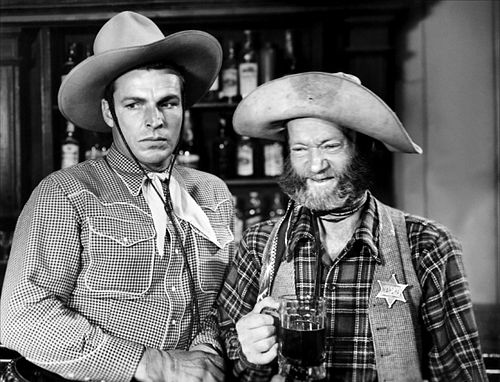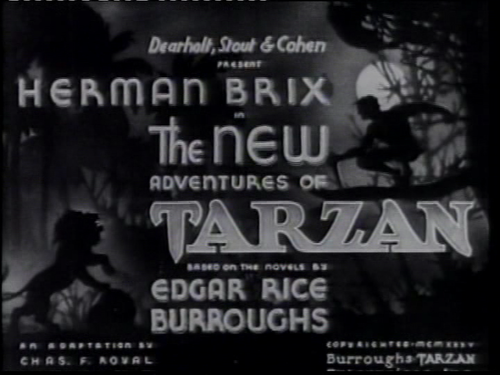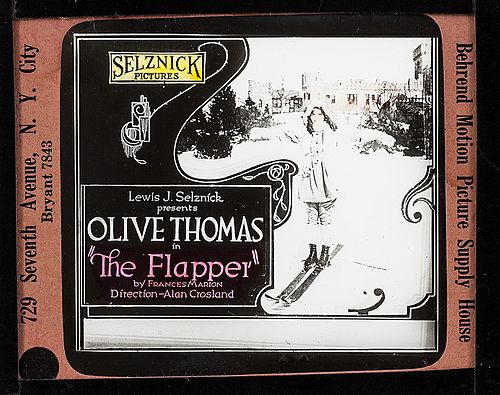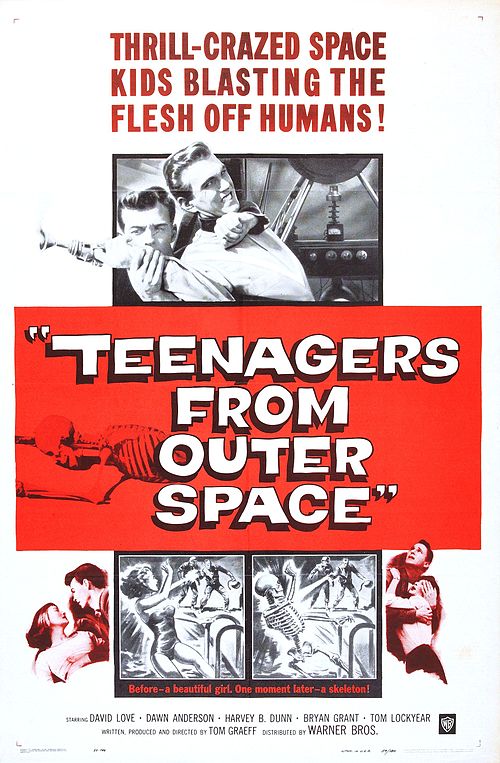Advertisement
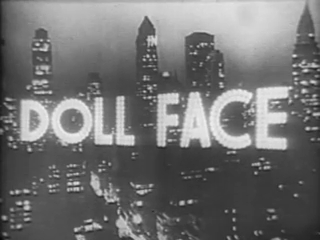
Image source: Wikimedia Foundation (wikimedia.org)
Download Movie [Video Format: MP4]
Movie Source: Internet Archive (archive.org)
Advertisement
Advertisement
Doll Face
1945
A former burlesque queen needs to acquire some culture to give herself some legitimacy.
Doll Face is a 1945 American film directed by Lewis Seiler starring Vivian Blaine as "Doll Face" Carroll. The film is also known as Come Back to Me in the United Kingdom.
Plot summary
"Doll Face" Carroll is an entertainer looking to expand her reportoire. After a failed audition, where she is recognized as a burlesque performer from the Gayety Theatre, her manager and fiancé Mike Hannegan suggest she writes an autobiography to project a more literate image and he hires Frederick Manly Gerard as a ghost writer. Doll Face agrees on the condition she is allowed to Dedication (publishing) the book to Mike with "For the love of Mike".Another performer in the burlesque show, Chita Chula, remarks that if the book is a success and Doll Face leaves the show it will probably have to close down. Mike then decides to produce a Broadway show of his own with the financial aid of the performers themselves. Frederick offers to put up any money missing. Chita Chula (portrayed by Carmen Miranda) is sceptical she can pull it off, but Mike assures her she'll "probably wound up being another Carmen Miranda!", something Chita Chula perceives as an insult.
Mike leaks word on the book to the press and, riding the publicity, argues the show got all the press it needs and that the book, although all but finished, needs not to be published. Doll Face, however, decides to go through with it and goes to Jamaica with Frederick for some final touch-ups. Boat engine trouble leaves them marooned on an island and when Mike finds them he breaks up with her. Without "Doll Face" as headliner, the Gayety Theatre struggles and Mike finally shuts it down.
File:Chorus - Dig You Later in Doll Face.png.}}}
Doll Face releases her book "The Genius DeMilo" and when Mike sees she dedicated the book to Frederick instead of him, he regrets leaving her. After Doll Face uses to talk to Mike he sends a lawyer to stop her show in the middle of opening night since she is under contract not to appear in any show not produced by him. She agrees to meet him and he asks her forgiveness. They reunite, she tricks the producer of her show to give Mike a 25% share and co-producer credit so the show can go on.
=Differences from play=
The film is based on the 1943 play The Naked Genius written by Gypsy Rose Lee.Cast
File:Vivian Blaine in Doll Face 2.pngFile:Dennis O'Keefe in Doll Face 2.png
- Vivian Blaine as Mary Elizabeth (Maybeth) "Doll Face" Carroll
- Dennis O'Keefe as Michael Francis "Mike" Hannegan
- Perry Como as Nicky Ricci
- Carmen Miranda as Chita Chula
- Martha Stewart (actor) as Frankie Porter
- Stephen Dunne (actor) as Frederick Manly Gerard
- Reed Hadley as Flo Hartman
- Stanley Prager as Flo's aide
- Charles Tannen as Flo's aide
- George E. Stone as stage manager
- Frank Orth as Peters
- Donald MacBride as Ferguson (lawyer)
- Robert Mitchum as passenger (uncredited)
Image:Perry Como - Here Comes Heaven Again in Doll Face.png|Perry Como<br>as Nicky Ricci
Image:Carmen Miranda - Chico Chico in Doll Face.png|Carmen Miranda<br>as Chita Chula
Image:Martha Stewart in Doll Face.png|Martha Stewart<br>as Frankie Porter
Image:Stephen Dunne in Doll Face.png|Stephen Dunne<br>as Frederick Manly Gerard
</gallery>
Soundtrack
- Vivian Blaine - "Somebody's Walking in My Dream" (Music by Jimmy McHugh, Lyrics by Harold Adamson)
- Perry Como and Martha Stewart - "Somebody's Walking in My Dream" (Music by Jimmy McHugh, Lyrics by Harold Adamson)
- Perry Como and chorus girls - "Red Hot and Beautiful" (Music by Jimmy McHugh, Lyrics by Harold Adamson)
- Vivian Blaine and male quartet - "Red Hot and Beautiful" (Music by Jimmy McHugh, Lyrics by Harold Adamson)
- Perry Como - "Here Comes Heaven Again" (Music by Jimmy McHugh, Lyrics by Harold Adamson)
- Perry Como and Vivian Blaine - "Here Comes Heaven Again" (Music by Jimmy McHugh, Lyrics by Harold Adamson)
- Perry Como and Martha Stewart - "Dig You Later (A-Hubba Hubba Hubba)" (Music by Jimmy McHugh, Lyrics by Harold Adamson)
- Carmen Miranda, Bando da Lua and chorus - "Chico Chico" (Music by Jimmy McHugh, Lyrics by Harold Adamson)
- "The Parisian Trot" (Music by Lionel Newman, lyrics by Charles E. Henderson)
Production and filming
File:Carmen Miranda in Doll Face 1946.jpgThe working titles of this film were The Naked Genius and Here's a Kiss. Playwright and renowned stripper Gypsy Rose Lee is credited onscreen as Louise Hovick, which was her real name. Noting the billing, the Var reviewer commented: "Pic could be exploited by use of the fact that Gypsy Rose Lee wrote the stage play, The Naked Genius, on which the script is based, and also by the fact that film has an autobiographical tinge in its story of a burlesque queen who writes the story of her life. But Twentieth Century-Fox, presumably fearing a boomerang, credits neither play nor authoress' w.k. [well-known] stage-name, merely listing pic as based on 'a play by Louise Hovick.'" Although a 6 Apr 1944 HR news item noted that producer George Jessel offered Lee a role in the picture, she does not appear in the finished film.
In Jun 1944, HR announced that Carole Landis would star in the film, and that Jackie Gleason would have the "comedy lead." According to Jul 1945 HR news items, William Eythe was scheduled to play the "romantic lead," and fifteen-year-old singer Hazel Dawn had been included in the cast. Dawn's appearance in the completed picture has not been confirmed, however. Dennis O'Keefe was borrowed from Edward Small's company for the film, which marked the screen debuts of Martha Stewart and Lex Barker. According to a 3 Aug 1945 DV news item, producer Bryan Foy filled in for director Lewis Seiler for three days while Seiler was ill
According to information in the MPAA/PCA Collection at the AMPAS Library and the Twentieth Century-Fox Records of the Legal Department, located at the UCLA Arts--Special Collections Library, the Breen Office used to allow the studio to use The Naked Genius as either the title of the film or of "Doll Face's" autobiography. The PCA also strongly protested the depiction of Doll Face as a stripper and disapproved several screenplays submitted by the studio. In late Jul 1945, PCA head Joseph I. Breen cautioned studio public relations head Jason S. Joy: "Please have in mind that any time you undertake to identify a character as a 'strip tease' artist, you run the risk of giving enormous offense everywhere. People, pretty generally, look up [sic] the business of the burlesque shows--and, more importantly, the strip tease--as, possibly, the very lowest form of public entertainment, and this same viewpoint is lected in the reaction of the Censor Boards."
In Aug 1945, Joy replied to Breen, in regard to a conference concerning the film attended by studio and PCA officials: "All of us distinctly understood that the strip tease flavor in Doll Face was not considered by you to be a violation of the Code, but that you were merely (and earnestly) warning us that any erence to strip tease would get us into an awful lot of trouble." Although the PCA continued to protest the film's burlesque setting, it was eventually given a production code seal and encountered few problems with state or city censor boards. The Breen Office also disapproved the lyrics for "Chico Chico (From Porto Rico)," stating that it constituted "a burlesque of the Latin-American character, and hence as such would unquestionably give offense to Latin Americans generally." The song lyrics were changed slightly and later approved.
According to the studio records, Jimmy McHugh and Harold Adamson submitted the song "True to the Navy" for inclusion in the film, and a production number featuring it was filmed. McHugh and Adamson had previously submitted the song to Paramount, however, which used it in their 1945 release Bring on the Girls. Paramount used to license the song for use in Doll Face , and the number, which cost between $60,000 and $75,000 to film, had to be cut. In a Dec 1945 letter to Twentieth Century-Fox studio president Spyros Skouras, studio attorney George Wasson speculated that Paramount used to license the song because Twentieth Century-Fox had obtained the distribution rights to Tales of Manhattan, which Paramount had desired, and because Twentieth Century-Fox had succeeded in getting clearance for the use of the title Sentimental Journey , which Paramount also wanted. The legal records also reveal that Irving Weissman filed suit against the studio, claiming that the song "Dig You Later (A Hubba-Hubba-Hubba)" had been plagiarized from one of his compositions. The case was dismissed in Sep 1948 by a federal court judge, but Weissman again filed suit through a state court. The disposition of the second suit has not been determined.<></><></>
Reviews
The studio Twentieth Century-Fox reportedly paid Louise Hovick (Gypsy Rose Lee) much money for the rights to The Naked Genius. Bosley Crowther of The New York Times wrote that "some one (not Miss Hovick) made a terrible deal. [...] the only distinction in its writing is a persistence in grammatical mistakes. The only remarkability about its pattern is a monotonous fidelity to form."</>Gallery
<erences/>
Category:1945 films
Category:American films
Category:1940s musical films
Category:1940s romantic comedy films
Category:English-language films
Category:Black-and-white films
Category:Films based on plays
Category:20th Century Fox films
Category:Films directed by Lewis Seiler
Bryan Foy


